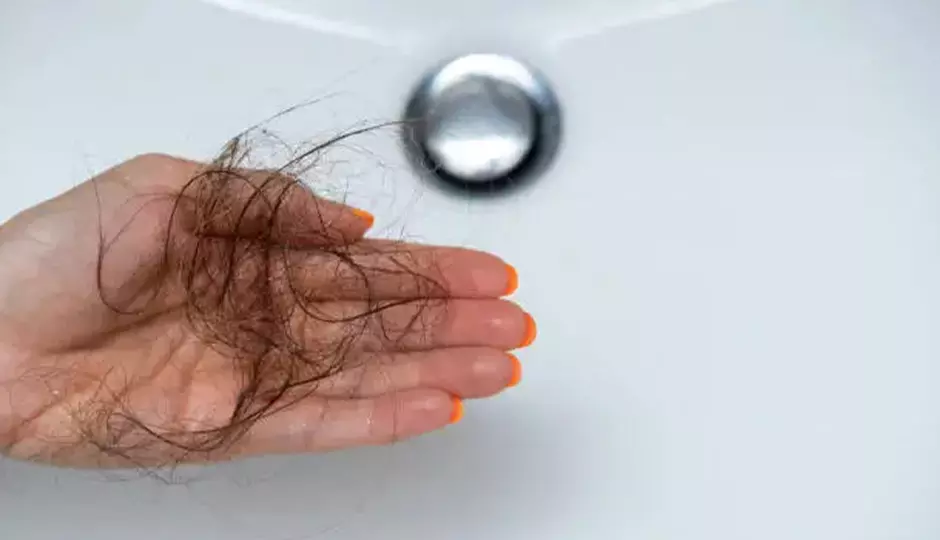The average adult typically loses around 100 strands of hair per day. This hair loss, usually referred to as shedding, is a natural part of the hair's regular growth cycle, with some hairs falling out while new ones grow.
Hormones play a significant role in hair follicle structure and the hair growth cycle. If you're experiencing hair loss, it might be worth exploring hormonal imbalances as a potential cause. Let's look closer at how hormones influence hair loss.
The Hair Growth Cycle
The hair growth cycle is a fascinating and dynamic process consisting of four phases.
- Anagen (Growth Phase): This is the active growth stage where the hair follicle produces new hair. The anagen phase lasts two to seven years and determines the hair's length.
- Catagen (Transition Phase): The transition phase is a short two to three-week phase where growth stops, and the hair follicle shrinks, detaching from its blood supply.
- Telogen (Resting Phase): In the Telogen phase, which lasts about three months, the blood supply is cut off, and the dormant hair begins to be pushed out to make room for new growth.
- Exogen (Shedding Phase): Sometimes considered part of the telogen phase, the hair actively falls out during the exogen stage while new hair emerges.
This cycle is a natural and continuous process that ensures hair renewal. Around 85–90% of your hair is usually in the anagen phase at any given time, while the rest cycles through catagen and telogen phases. This intricate system explains why we typically lose some hair daily.
How Do Hormones Contribute to Hair Loss?
Androgens, or male hormones, such as testosterone, dihydrotestosterone, and their prohormones, are key factors in terminal hair growth. Other hormonal factors include fluctuations in estrogen and progesterone, particularly during menopause, which can disrupt the balance and promote hair thinning. Additionally, stress-induced hormones like cortisol can contribute to shedding.
Even the slightest hormonal change or imbalance can lead to hair loss. Here's how hormones contribute to hair loss.
Androgens (DHT and Testosterone)
- As mentioned earlier, DHT (dihydrotestosterone) is a significant factor in hair loss, especially in androgenetic alopecia, commonly known as male or female pattern baldness.
- DHT attaches to androgen receptors in hair follicles, particularly in areas like the crown and hairline, weakening them over time.
- Genetic predisposition determines how sensitive your hair follicles are to DHT, which explains why some people experience this type of hair loss more than others.
Estrogen and Progesterone
Estrogen usually helps keep hair in the anagen phase of the hair growth cycle, which is why hair often appears fuller during pregnancy when estrogen levels are high.
After pregnancy or during menopause, estrogen and progesterone levels drop, potentially triggering telogen effluvium, a condition where hair sheds excessively due to fluctuations of these hormones.
Thyroid Hormones
An imbalance in thyroid hormones, hypothyroidism or hyperthyroidism can disrupt the hair growth cycle. Low levels of thyroid hormones can cause hair to become brittle and thin, while excessive levels might lead to shedding.
Stress Hormones (Cortisol)
Chronic stress elevates cortisol levels, which can disrupt the natural hair cycle. High cortisol levels may lead to conditions like telogen effluvium, where hair follicles prematurely shift to the shedding phase.
Insulin and Polycystic Ovary Syndrome (PCOS)
Women with PCOS often experience hormonal imbalances, including elevated androgens, which can lead to hair loss, particularly on the scalp, while simultaneously causing excessive hair growth in other areas.
Growth Hormones and Aging
As we age, levels of growth hormones decline, potentially reducing the rate at which hair regenerates and contributing to the thinning and weakening of hair over time.
Are Hormones Contributing to Your Hair Loss?
Many factors contribute to hair loss. Finding the exact cause is imperative to determine the best treatment. However, determining the cause of hair loss can be challenging because there is often more than one contributing factor.
At LH Hair, we understand hair loss and how it affects you. Our team of experts is committed to helping clients determine the underlying causes of their hair loss condition and find a solution. If you're experiencing hair loss and wondering if hormones are contributing to your condition, contact us today to schedule your FREE initial consultation and learn how our team can help.



